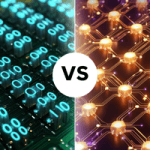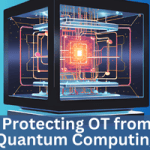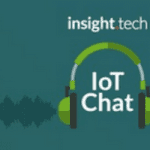Quantum Computers
Quantum Computing is Decades Faster than the Best Supercomputers
Quantum computers represent a profound leap in computational capabilities, fundamentally different from traditional supercomputers. While supercomputers rely on traditional binary logic, quantum computers exploit the principles of quantum mechanics, enabling them to compute certain problems exponentially faster. Performance of Supercomputers vs Quantum Computers In 2023 Google scientists reported in a study that it completed a…
Read MoreProtecting Operational Technology from Quantum Computing
Protecting OT from Quantum Computing What is Quantum Computing? Quantum computing leverages the principles of quantum mechanics to perform complex calculations far more efficiently than classical computers. Unlike classical bits, which represent data as 0 or 1, quantum bits (qubits) can exist in multiple states simultaneously due to superposition. This, along with entanglement—where qubits become…
Read MoreIoT Security Resistant to Quantum Computing
Many IoT systems remain in the field for years or even decades, creating major challenges for security. Building automation and industrial systems are prime examples. Conventional IoT security and encryption techniques may be sufficient for now, but advances in technology like quantum computing will soon break popular methods like ECC and RSA. What’s the best…
Read MoreWill Enterprise Prioritize IoT Security Over Innovation in 2019?
This month we highlight security issues of concern to both consumers and enterprises, and we also share video from SecureRF’s participation at recent key industry events. News Six Security Issues Set to Dominate IoT in 2019 The implementation of IoT security is expected to be a top priority for businesses this year, even at…
Read MoreIoT Security Trends and Predictions for 2019
More than half of consumers expected to spend money on technology products during this past holiday season, according to a recent survey from Arm. Even though consumers are embracing technology broadly in their professional and personal lives, they said they would buy even more technology products if their security and privacy concerns were assuaged. Security…
Read MoreWalnutDSA Presented at NIST’s First PQC Standardization Conference
On April 11, NIST held their first Post-Quantum Cryptography (PQC) Standardization Conference, an important milestone in the project and the effort to find and standardize quantum-resistant security solutions. More about this project and SecureRF’s involvement can be found here. The workshop brought together presenters of more than 60 submitted solutions to NIST’s call for quantum-resistant,…
Read MoreNIST Post-Quantum Cryptography Standardization Project and SecureRF
Quantum computing is moving from theory to reality. MIT and commercial entities including IBM, Microsoft, and Google have already delivered elementary quantum computing platforms. When large-enough quantum computers are built, known algorithms will be able to weaken or break most of the public-key methods now in use. Concerns over the security threat this represents are…
Read MoreIoT Security News: Attacks, Encryption and WAP3
The new year kicked off with major security-related news. On January 3, we learned that billions of CPUs are vulnerable to the Meltdown and Spectre side-channel attacks, which can be used to access sensitive data, including passwords, cryptography keys, and files. Since then, chip makers and cloud service providers have been scrambling to develop and…
Read MoreInterview: Louis Parks on “Securing Our Future” with Peggy Smedley
Louis Parks (CEO, SecureRF) recently appeared on The Peggy Smedley Show podcast (Episode 545). In a segment titled “Securing Our Future,” Parks covered the history of public-key security, the importance of securing low-resource processors, and SecureRF’s future-proof authentication and data protection solutions for 8-, 16-, and 32-bit processors. Parks also explained the threat quantum computers pose…
Read MoreNIST Accepts SecureRF’s WalnutDSA for Evaluation
SecureRF’s Walnut Digital Signature Algorithm (WalnutDSA) has been accepted by the National Institute of Standards and Technology (NIST) for evaluation as a standard for post-quantum, public-key cryptography. NIST expects to perform multiple rounds of evaluation over a period of three to five years on all of the methods submitted. WalnutDSA is a fast, easy-to-implement, low-energy solution…
Read More


